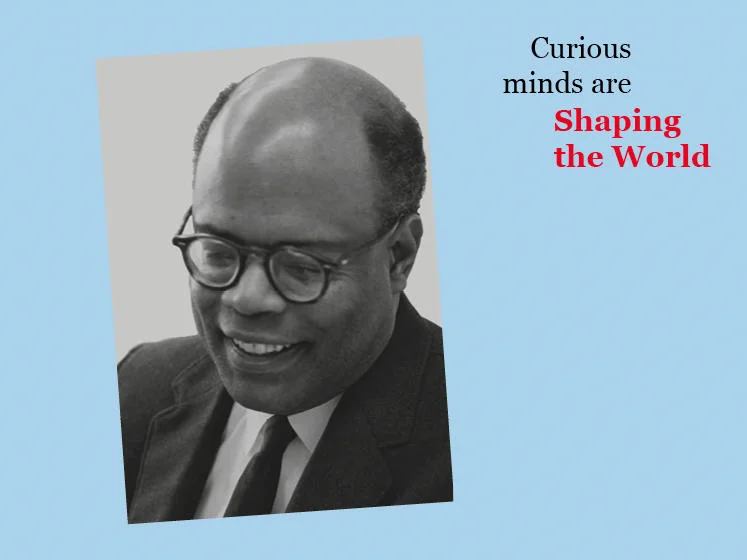Sir Arthur Lewis
PhD Industrial Economics 1937

Arthur Lewis (1915-1991) arrived at LSE in 1933 to study for a B Commerce degree. He gained a first-class degree in 1938 and was appointed to a temporary assistant lectureship the same year, making him LSE’s first black academic. He obtained a scholarship to begin a PhD and his thesis The Economics of Loyalty Contracts was completed in 1940.
Although academic life was successful Lewis later recalled that he was "subjected to all the usual disabilities – refusal of accommodation, denial of jobs for which he had been recommended, generalised discourtesy and the rest". In 1937, despite his first-class degree, he was rejected by the Colonial Services for a post as an administrator in Port of Spain, Trinidad. Ironically by 1941 he was undertaking research for the Colonial Office.
Lewis’s appointment to a temporary assistant lectureship in 1938 reflected this ambivalence. Although the decision to appoint Lewis was unanimous the LSE Director, Alexander Carr-Saunders felt the need to restrict his teaching and explain the appointment to the Court of Governors: "He would therefore not see students individually but in groups. The Appointments Committee is, as I said, quite unanimous but recognise that the appointment of a coloured man may possibly be open to some criticism. Normally, such appointments do not require the confirmation of the Governors but on this occasion I said that I should before taking any action submit the matter to you."
During the Second World War he worked for the Colonial Office reporting on the financing of mining and industrial development in the British colonies. Lewis’ desire to set economic research in the context of the wider needs of Britain’s colonies often conflicted with the Colonial Office’s narrow technocratic agenda and Lewis’s 1944 resignation letter described his time as secretary as "largely a waste of time" – but it helped in defining his views on development economics.
Lewis left LSE in 1948 when he was appointed a professor of economics at Manchester University. In 1979 he was awarded the Nobel Prize for Economics for "pioneering research into economic development research with particular consideration of the problems of developing countries". In his Nobel Prize biography Lewis called his studies at LSE "marvellous intellectual feasts".
The LSE building located at 32 Lincoln’s Inn Fields, which houses the Economics department, was renamed the Sir Arthur Lewis Building in 2023 in honour of LSE’s first black professor.